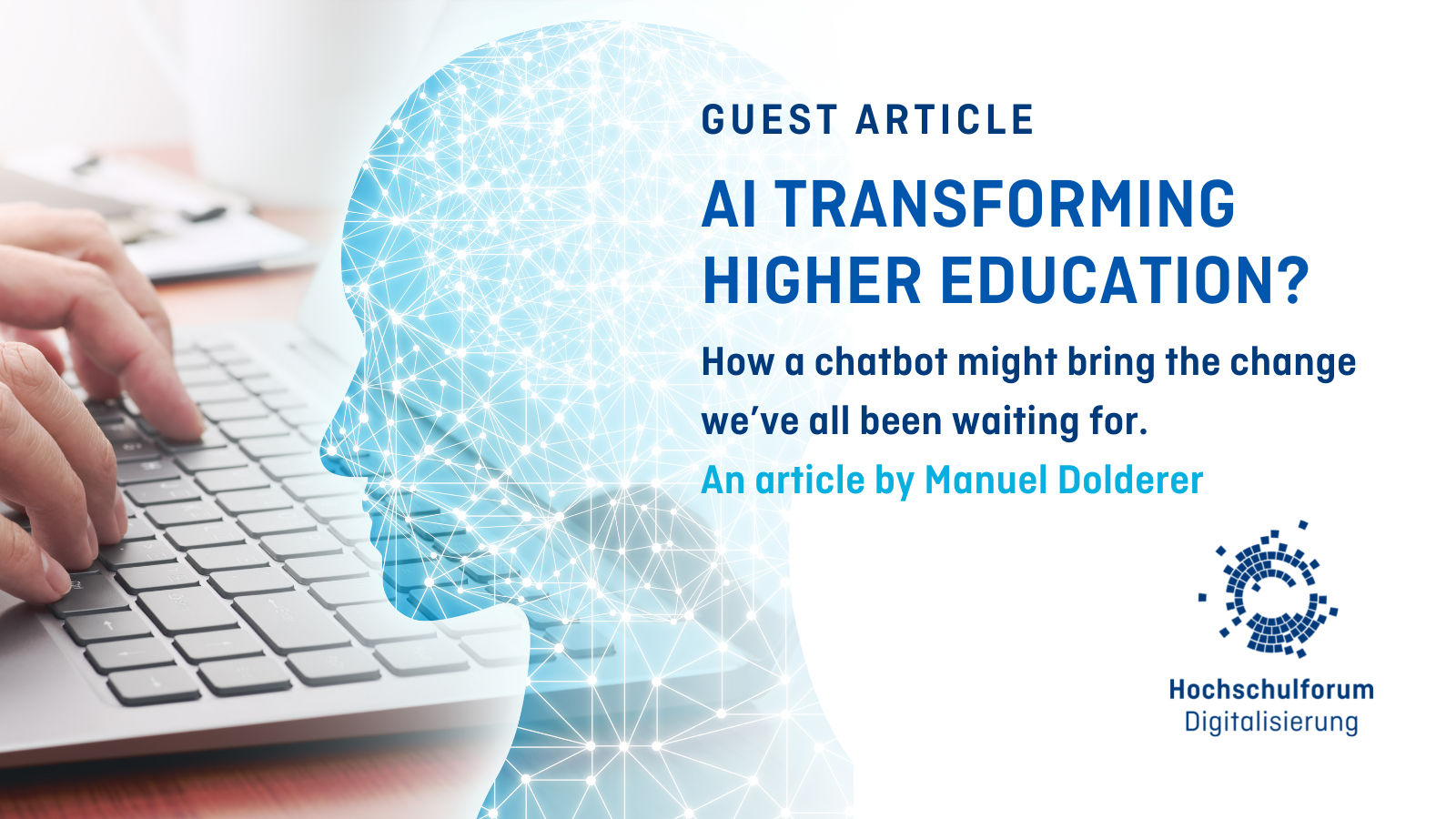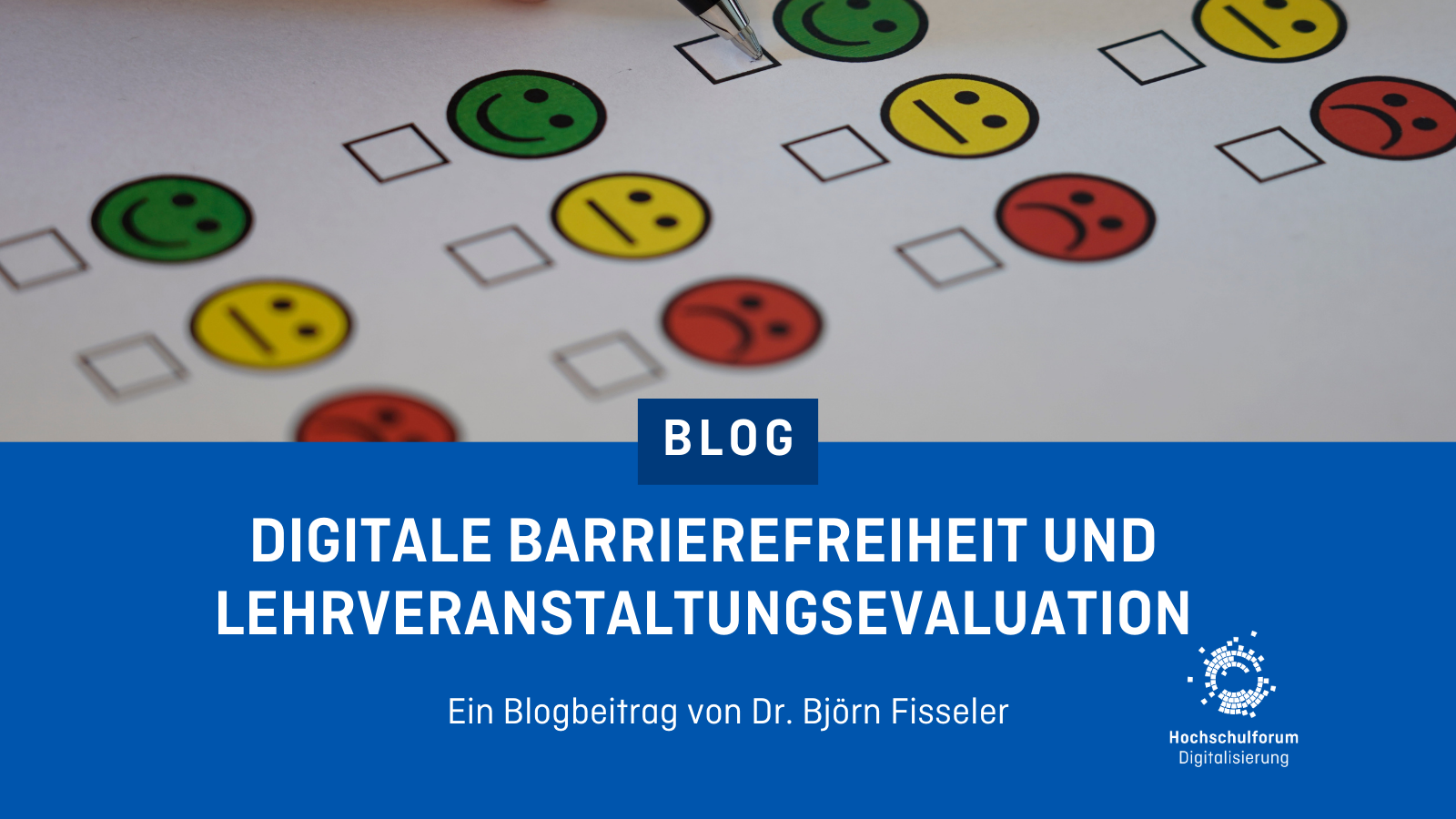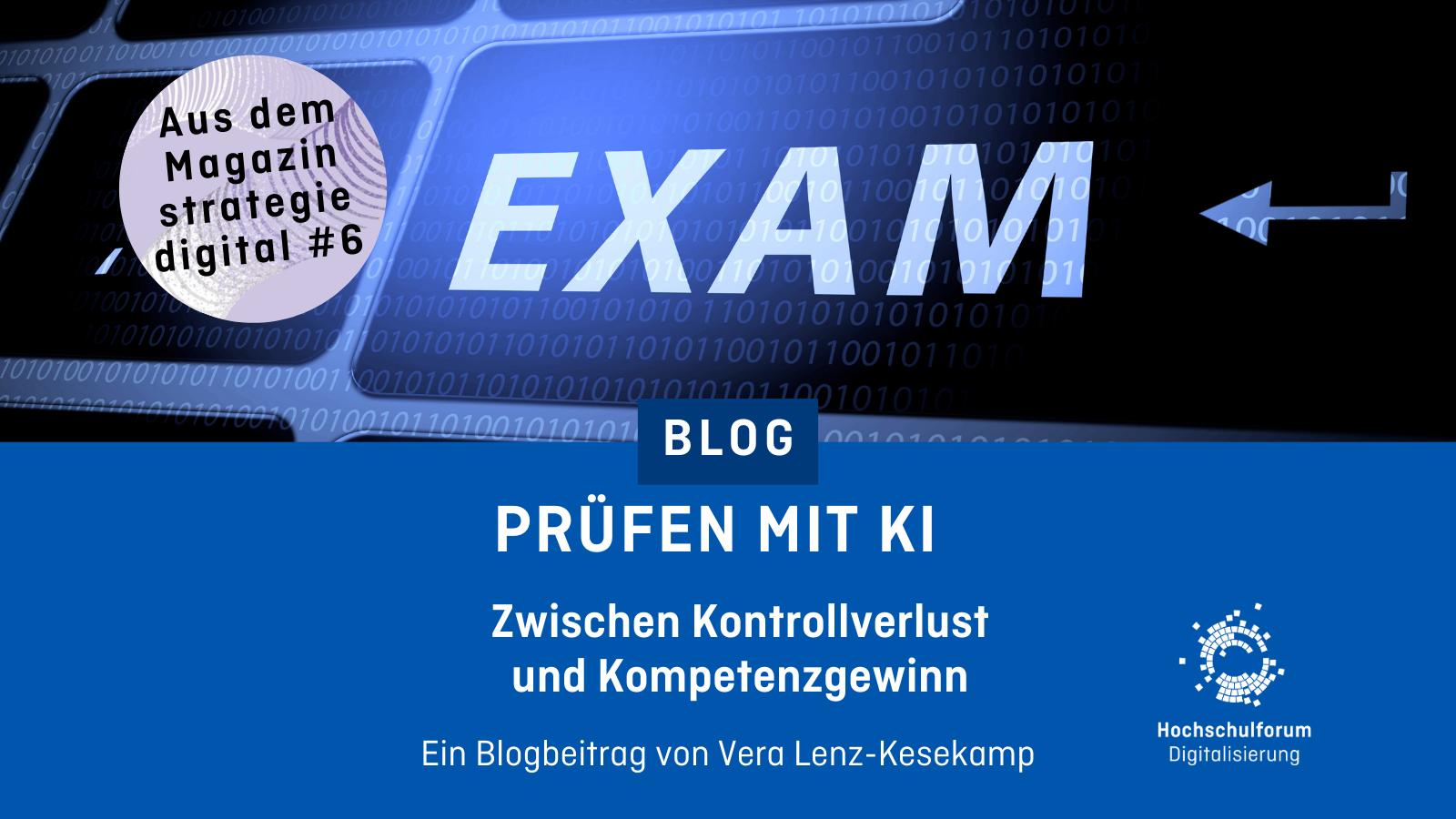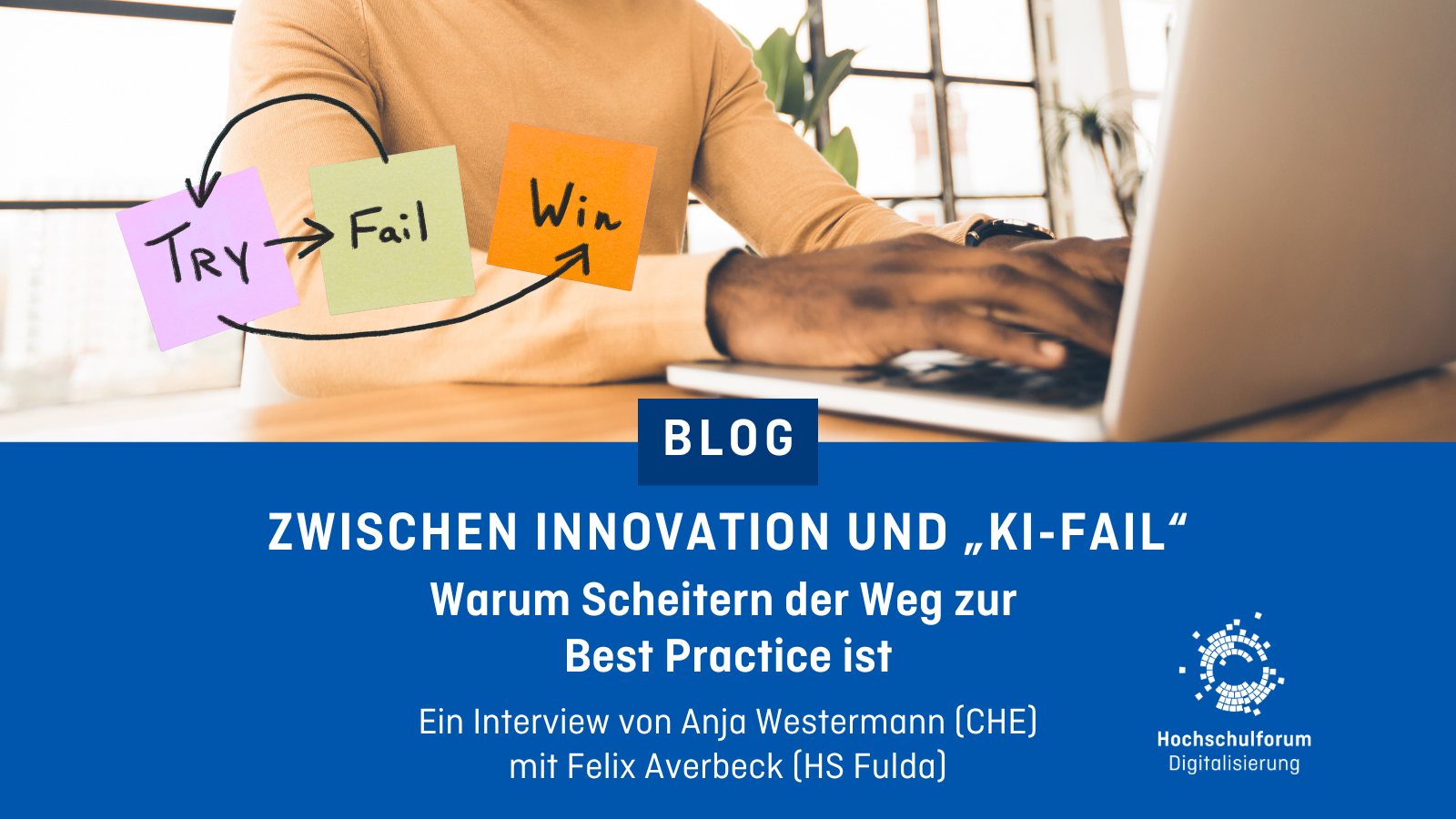AI transforming higher education? How a chatbot might bring the change we’ve all been waiting for
AI transforming higher education? How a chatbot might bring the change we’ve all been waiting for
19.12.22
How will artificial intelligence affect our academic culture? Recent debates about GPT-3 raised concerns about AI possibly outpacing well-known forms of publication and assessment. In our Blog, Manuel Dolderer, Co-Founder and President at CODE University of Applied Sciences, pleads for new learning environments that embrace and shape technological progress.

As universities, it is our job to predict the future, because it is the world of tomorrow for which we’re preparing our students. We therefore should be as much concerned with how the world will look like in 10 years from now as we are with the world of today.
Today, everyone in higher education seems to be talking about an AI-powered chatbot and the fact that it can be used by students to create reports and essays and hand them in as their original work. Or that it can draft legal documents, write poems, summarise books or transcripts, and suggest recipes based on dietary restrictions and whatever is left in your fridge.
This raises some intriguing questions – and let me be clear: how to prevent students from using this technology in assessments or how to bust them if they do is – in my opinion – exactly the wrong question to be asked. Let me just put it this way: In a learning environment where students feel encouraged to learn and see assessments as valuable feedback and where professors are connected to their students and able to support them through their whole learning journey – cheating with or without AI shouldn’t be much of a problem. If it is, it’s the learning environment that needs to change.
And while I hope ChatGPT creates enough pressure for us to finally have a serious discussion about the questions above, I am much more concerned about what this technology will be able to do in 10 years from now and how we can prepare our students for a future in which much more powerful versions of algorithms like GPT-3 will be everywhere.
Starting today, universities have the responsibility to make sure that their students – regardless of subject or profession – understand enough of the technology behind GPT-3 to start using it as the powerful tool that it is. Together with their professors, our students need to be able to rethink and reshape their future as teachers, designers, engineers or scientists in a world where such a powerful technology exists.
GPT-3 is the latest appearance in a long list of examples of why we need to make sure all our students – no matter their subject or prospective career – are technoliterates with a basic understanding of today’s digital technologies and their future potential. And that they have the mindset necessary to see these technologies as opportunities instead of threats.


 Dr. Björn Fisseler
Dr. Björn Fisseler 
 Vera Lenz-Kesekamp
Vera Lenz-Kesekamp 
 Felix Averbeck
Felix Averbeck 